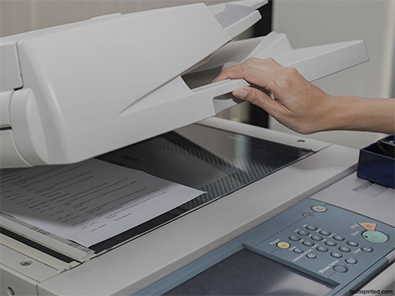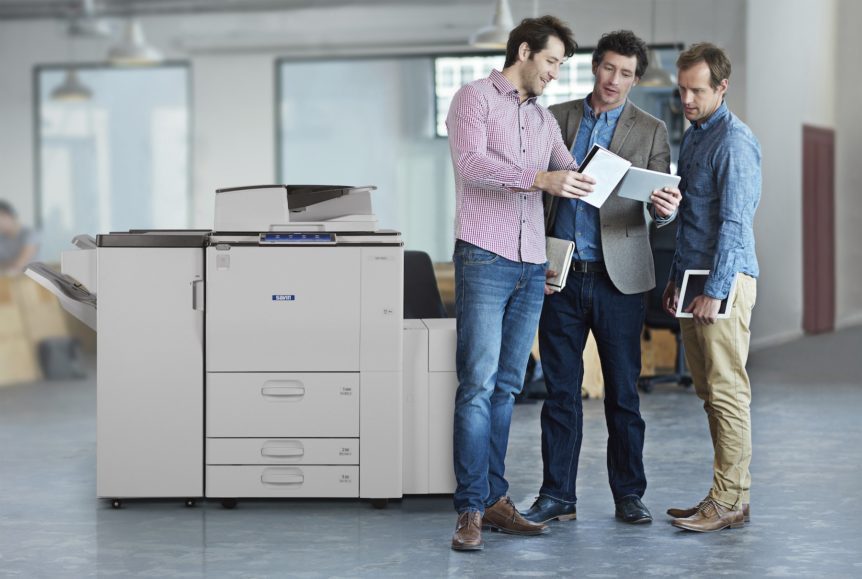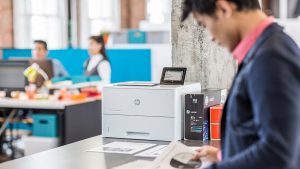When it comes to outfitting your office with a new copier, the decision isn’t just about picking the right model. You must also decide whether copier leasing or purchasing the copier is smarter. Both options have benefits, but the right choice for your business depends on your budget, technology needs, and long-term goals.
If you’re stuck in the copier dilemma, you’re not alone! Many business owners debate whether leasing or buying makes more sense for their company. This post will break down the pros and cons of each option, explore everything from cost considerations to tax benefits, and give you the clarity you need to make the best decision.
So, let’s examine the details and determine whether a copier lease or purchase is the best move for your business!
The Basics: Copier Lease vs. Purchase
Before we dive into the details, let’s review the basics of each option.
- Leasing a Copier: When you lease a copier, you essentially rent the machine for a fixed period (typically 36 to 60 months). You make regular monthly payments for the duration of the lease. At the end of the lease, you have a few options: return the copier, renew the lease, or purchase the machine for a predetermined price (in some cases).
- Purchasing a Copier: When you buy a copier, you pay the full price upfront (or through financing) and own the machine outright. After the purchase, you’re responsible for all maintenance and repairs, unless you opt for a service contract.
1. Budget Considerations: Initial Cost vs. Long-Term Commitment
Leasing:
One of the biggest reasons businesses opt for leasing a copier is the lower initial cost. Leasing typically requires little to no upfront payment, which means you can get the latest and greatest equipment without a significant cash outlay. Your monthly payments are spread over the lease term, allowing you to budget more easily.
However, while the initial cost of leasing is lower, you should consider the long-term cost. Over time, leasing can add up, especially if you don’t opt to purchase the copier at the end of the lease. You’ll keep paying for the equipment without ever owning it.
Purchasing:
Buying a copier comes with a higher upfront cost but can be more cost-effective in the long run. Once you’ve made the purchase, you own the copier and don’t have to worry about monthly lease payments anymore. In most cases, you can keep the copier for several years before upgrading or replacing it, making the purchase more economical if you plan to use it for the long term.
The Verdict:
Leasing is a good option if your business is tight on cash but needs a copier immediately. But, if you have the budget and plan to keep the copier for several years, purchasing may be more cost-effective in the long term.
2. Technology Needs and Upgrades
Leasing:
Technology moves fast, and copiers are no exception. Leasing allows your business to upgrade to the latest technology without worrying about selling or disposing of an old machine.
At the end of your lease term, you can simply return the copier and lease a newer, more advanced model. This is ideal for businesses that need the latest features, such as cloud printing, mobile compatibility, and high-quality color printing.
Leasing also means minimal risk of having outdated technology. As new models emerge, you can refresh your equipment, ensuring you’re always working with the best available tools.
Purchasing:
On the other hand, purchasing a copier means you’re stuck with that model until you decide to replace it. If your copier becomes outdated and lacks important new features, you’ll have to decide whether to keep it or invest in a new one.
While it’s possible to upgrade parts (like toner cartridges or memory), you can’t simply swap out the machine for a newer model unless you go through the hassle of selling the old one and purchasing a new copier.
The Verdict:
Leasing is ideal for businesses that need to stay on the cutting edge of technology. Leasing gives you more flexibility if you’re in an industry where the latest copier features are critical (like high-speed color printing or advanced scanning). Purchasing, however, might make sense if you’re comfortable with your current technology and don’t need frequent upgrades.
3. Maintenance and Service Contracts
Both leasing and purchasing have advantages when it comes to copier maintenance, but the details vary significantly.
Leasing:
With a lease, maintenance and repairs are often included in your contract, or available for an additional fee.
The leasing company is responsible for keeping the copier in good working condition, and they will handle any necessary repairs or replacements at no additional cost to you (apart from the agreed-upon fees). This can be incredibly convenient for businesses that want to avoid the hassle of handling copier repairs themselves.
Some leases also offer service bundles that include regular maintenance, toner replenishment, and more, giving you peace of mind that your copier is always functioning well without any unexpected costs. However, be sure to understand the terms of your maintenance agreement, as some repairs may not be covered, especially if they’re due to misuse.
Purchasing:
If you purchase a copier, you are responsible for maintenance and repairs. You can buy a service contract from the manufacturer or a third-party company, adding to your overall cost. The upside of buying is that you have more control over the repair process, choosing a service provider that fits your needs.
However, you’re on your own without a service contract when something goes wrong. If your copier breaks down, it could result in unexpected repair costs and extended downtime.
The Verdict:
Leasing is typically easier for maintenance, as it’s usually bundled into the lease terms. For purchasing, you’ll need to budget for ongoing maintenance through a service contract or as individual repairs arise. Consider how much time and effort you’ll spend handling maintenance before deciding which route is best for your business.
4. Tax Benefits
Leasing:
One of the major tax benefits of leasing a copier is that the lease payments are generally deductible as a business expense. This can lower your taxable income, which is especially helpful if your business wants to reduce its tax burden. Lease payments are typically considered operating expenses, which makes them more easily deductible than purchasing a copier.
Purchasing:
When you buy a copier, you can also take advantage of tax deductions—specifically, depreciation. Copiers typically depreciate over a period of five to seven years, and you can claim depreciation each year, lowering your tax liability.
Additionally, depending on your location and business circumstances, you might be able to write off the entire cost of the copier in the first year using Section 179 of the IRS tax code.
The Verdict:
Both leasing and purchasing offer tax advantages, but the type of deduction depends on your business situation. Leasing offers the advantage of immediate deductions for payments, while purchasing offers long-term benefits through depreciation. Consult with a tax advisor to determine which option is best for you.
5. Total Cost of Ownership
When determining the total cost of owning a copier, it’s important to consider all expenses over the machine’s lifetime.
Leasing:
Leasing a copier typically involves fixed monthly payments, making budgeting easier. However, when you lease, you never actually own the copier. This means that after several years of payments, you will have paid significant money without acquiring any asset. The cost over time can add up, especially if you lease for multiple terms.
Purchasing:
While the upfront cost of purchasing is high, owning the copier means you can use it for as long as you want without worrying about monthly payments. After the initial investment, you only need to cover maintenance, toner, and other operational costs. The copier may last several years, giving you the best long-term value if you use it for a significant amount of time.
The Verdict:
Leasing can be more cost-effective in the short term, but purchasing tends to be better for long-term savings if you’re willing to make the upfront investment.
Which is Best for Your Business?
Deciding whether to lease or buy a copier is a significant choice that depends on your unique business needs. Leasing offers flexibility, lower initial costs, and regular upgrades, making it ideal for companies that need the latest technology and don’t want to deal with the hassle of maintenance. Purchasing a copier is better suited for businesses that want long-term savings, have the upfront budget, and don’t mind handling maintenance independently.
Ultimately, the decision is yours, but one thing is clear—whichever option you choose, Clear Choice Technical Services is here to help. We offer expert guidance on copier purchases, leases, and maintenance contracts to help your business get the best value for your needs.
Ready to make the right choice for your business? Reach out to Clear Choice Technical Services today and let us help you navigate the copier leasing or purchasing process!






